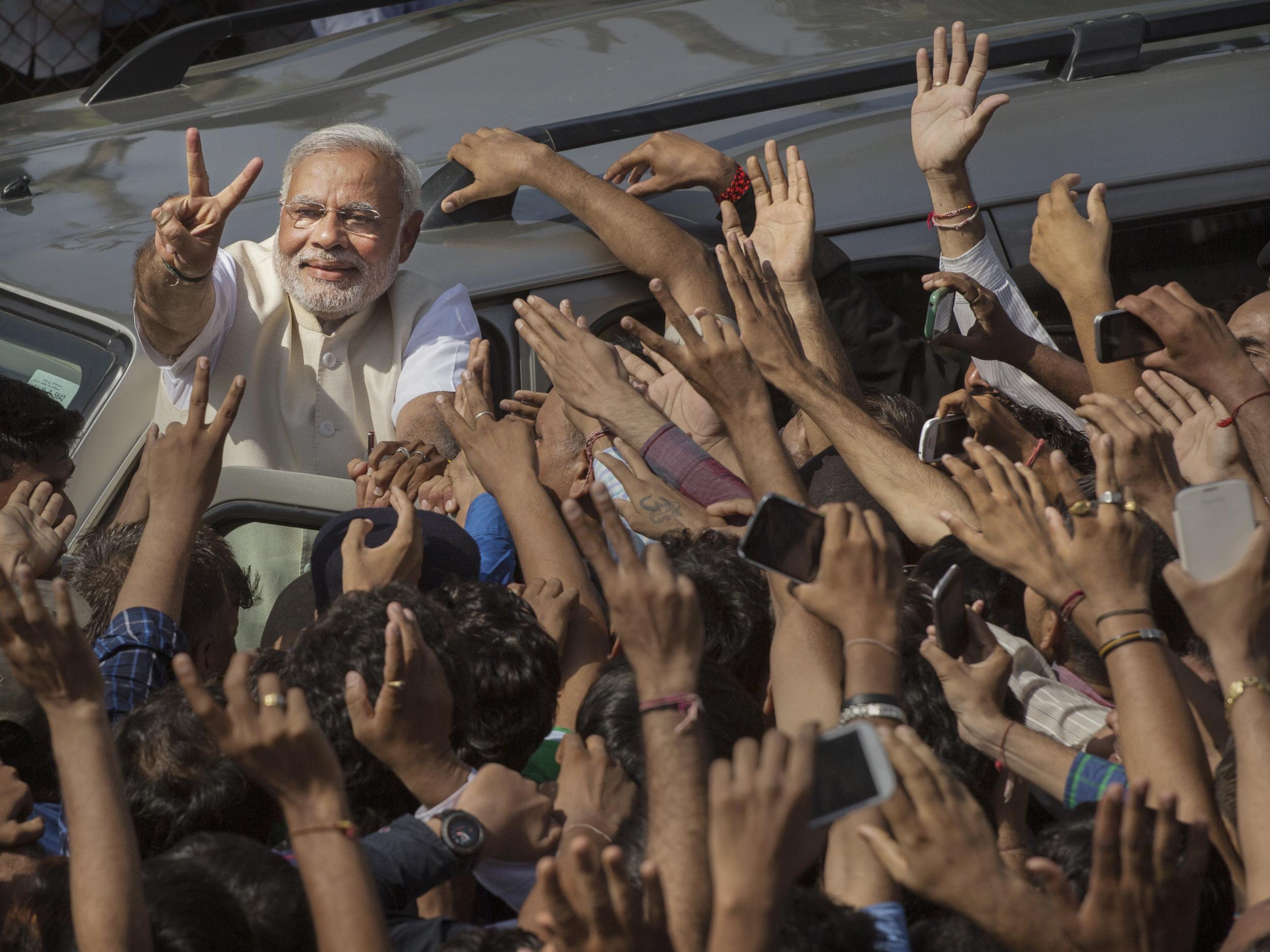Indian government bans Hindi-language news channel for 24 hours
The Information and Broadcast Ministry say NDTV endangered lives by revealing details of a military operation, but some people view the penalty as an attack on press freedom

Your support helps us to tell the story
From reproductive rights to climate change to Big Tech, The Independent is on the ground when the story is developing. Whether it's investigating the financials of Elon Musk's pro-Trump PAC or producing our latest documentary, 'The A Word', which shines a light on the American women fighting for reproductive rights, we know how important it is to parse out the facts from the messaging.
At such a critical moment in US history, we need reporters on the ground. Your donation allows us to keep sending journalists to speak to both sides of the story.
The Independent is trusted by Americans across the entire political spectrum. And unlike many other quality news outlets, we choose not to lock Americans out of our reporting and analysis with paywalls. We believe quality journalism should be available to everyone, paid for by those who can afford it.
Your support makes all the difference.Narendra Modi's government has banned a Hindi-language television channel from broadcasting in India for 24 hours.
NDTV will be taken off air on 9 November as a penalty for “revealing strategically sensitive details” during a militant attack on an air force base in January, the Ministry of Information and Broadcasting announced on Thursday
The channel responded in a statement saying it had been “singled out” and insisting “every channel and newspaper had similar coverage”. Campaigners and people on social media have said the ban is an attack on press freedom.
A committee investigating the channel said the anchor and correspondent gave away crucial information about the number of alleged terrorists in a building and details about how the army was planning to defeat them.
The broadcast "could have been readily picked by terrorist handlers and had the potential to cause massive harm not only to the national security, but also to lives of civilians and defence personnel,” the report said.
The news coverage also reportedly revealed details of an arms cache, the ammunition stockpiled at the airbase and fighter-planes, and fuel-tanks that the terrorists could attack. These details were not provided in a government briefing given during the attack.
But NDTV said most of the information they had put out was already available in the public domain in print, electronic, and social media.
The Telegraph Act of 1885 gives the state in India highly restrictive powers over the media.
Disseminating information regarding an area under attack, or specific details of counter-terror operations during a siege, violates the Cable Television Networks Rules, amended in 2015, which also prevent channels from beaming live coverage of any anti-terrorist operation by security forces.The rules state media coverage must not include any information not given by a designated army officer in periodic briefings, until after the operation has concluded.
The committee said the channel defied these rules, because the channel “appeared to give out the exact location of the remaining terrorists with regard to the sensitive assets in their vicinity” when they broadcast in real time.
There have been 28 other instances of channels being taken off air for violations, according to Indian media.
In a particularly high profile case, Al Jazeera was kept off air for five days for showing what the Indian government called an "incorrect" map of the disputed Kashmir region.
The 2016 World Press Freedom Index, released by Reporters Without Borders (RSF), ranked India 133 of 180 countries. A report to accompany the list also made a point of criticising what they believe to be the Indian government's "indifference to the threats against journalists".
The report said: “Journalists and bloggers are attacked and anathematised by various religious groups that are quick to take offence. At the same time, it is hard for journalists to cover regions such as Kashmir that are regarded as sensitive by the government".
The organisation added: "Prime Minister Narendra Modi seems indifferent to these threats and problems, and there is no mechanism for protecting journalists."
Join our commenting forum
Join thought-provoking conversations, follow other Independent readers and see their replies
Comments